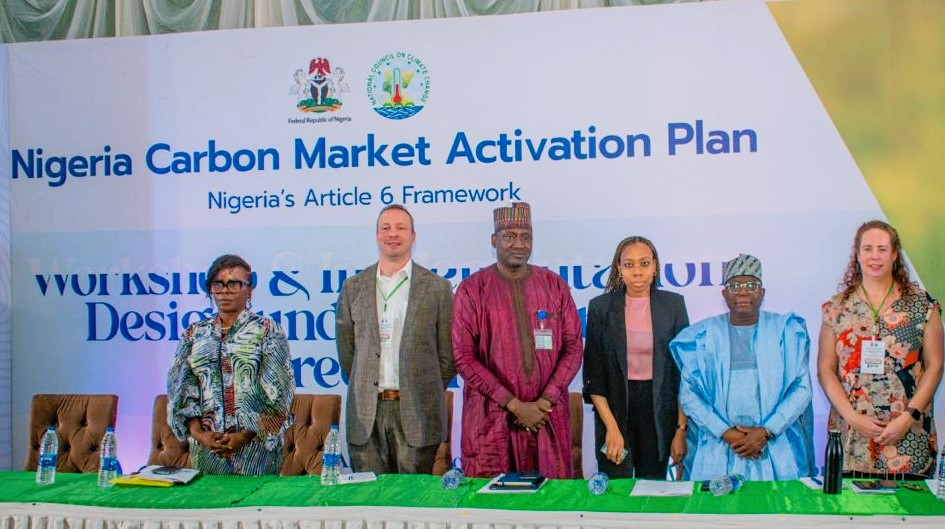NCCC Hosts Article 6 Implementation Training, As Nigeria Gears Up For Carbon Trading

By Stephanie Odiase
Following the COP28 call for real climate action, the National Council on Climate Change (NCCC) convened a training workshop titled “Nigeria’s Carbon Market Activation Plan: Nigeria’s Article 6 Framework & Implementation Design under the Paris Agreement.”
This intensive training, supported by the United Nations Development Programme (UNDP) marks a significant step towards operationalizing Article 6 of the Paris Agreement and establishing Nigeria as a leader in carbon market development.
The Minister of Environment, Balarabe Lawal who was represented at the event by the Permanent Secretary in the Ministry, Alh. Mahmud Kambari, while declaring the workshop open, highlighted the significance of carbon markets in achieving global climate goals and Nigeria’s ambitious Nationally Determined Contribution (NDC) targets.
“Carbon markets offer a vital tool to mobilize resources, reduce costs, and facilitate a smooth transition to a low-carbon economy. Nigeria has the potential to generate millions of tons of carbon credits annually by 2030 through projects like reforestation, renewable energy, and waste-to-energy initiatives,” he stated.
Unlocking this potential, according to the Minister, hinges on international partnerships, capacity building, and targeted investments. “We recognize the importance of collaborating with international partners and fostering the necessary skills and resources to fully realise the opportunities presented by carbon markets,” he emphasized.
Nigeria’s growing commitment to emissions reduction was underscored by the Minister, citing the country’s updated NDC and participation in relevant climate initiatives. “Our unwavering efforts to curb greenhouse gas emissions are clearly demonstrable through our NDC targets and engagement in partnerships under Article 6,” He affirmed.
In his remarks, the Director General of the NCCC, Dr. Salisu Dahiru, emphasized the strategic importance of Article 6 in achieving Nigeria’s ambitious Net Zero target by 2060. “Market-based mechanisms, including a well-designed and implemented trading scheme, can be a powerful tool for reducing emissions,” Danhiru stressed
He further emphasised the need for a robust institutional architecture to manage Article 6 activities effectively. The NCCC serves as the National Designated Article 6 Authority (NDAA), overseeing all transactions and authorizing projects aligned with national interests. Furthermore, the establishment of an Article 6 Technical Committee (A6.TC) ensures cross-ministerial coordination and assesses the impact of cooperation agreements on emission reduction, sustainable development, and financial resource mobilization.
Dahiru underscored the crucial role of stakeholder’s collaboration in realizing the full potential of the carbon market framework. “Your guidance and comprehensive input are essential, together, we can harness the power of collaboration to drive positive change, foster green growth, and build a resilient environment for all,” he added.





























